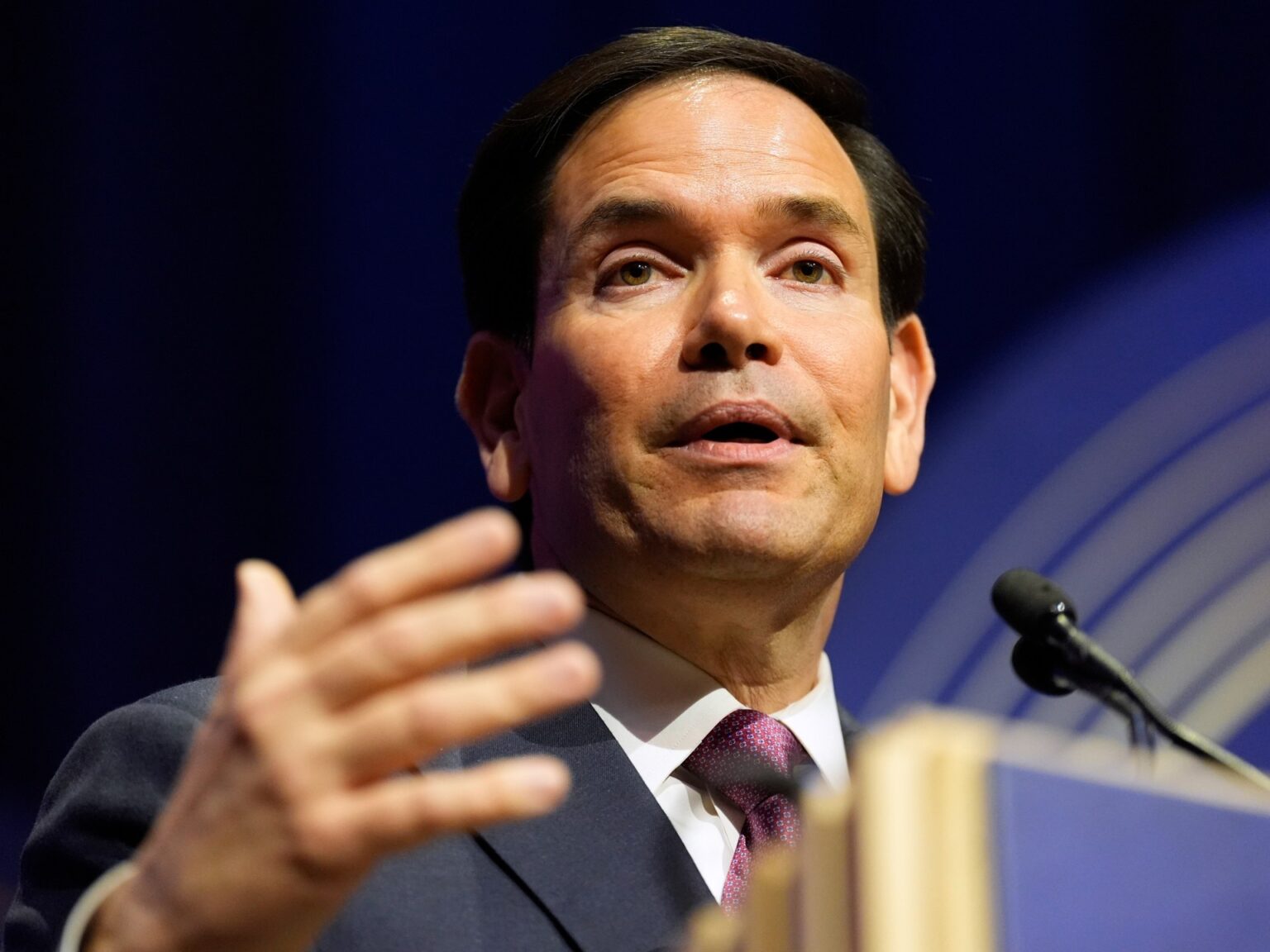The administration of President Donald Trump has followed through with a threat to sanction officials on the International Criminal Court (ICC), naming four judges whom it accuses of taking “illegitimate and baseless actions” against the United States and its allies.
On Thursday, US Secretary of State Marco Rubio announced the sanctions in a sharply worded written statement.
“The ICC is politicized and falsely claims unfettered discretion to investigate, charge, and prosecute nationals of the United States and our allies,” Rubio wrote.
“This dangerous assertion and abuse of power infringes upon the sovereignty and national security of the United States and our allies, including Israel.”
The four sanctioned judges include Solomy Balungi Bossa of Uganda, Luz del Carmen Ibanez Carranza of Peru, Reine Adelaide Sophie Alapini Gansou of Benin and Beti Hohler of Slovenia.
As a result of the sanctions, the judges will see their US-based property and assets blocked. US-based entities are also forbidden from engaging in transactions with them, including through the “provision of funds, goods or services”.
The ICC quickly issued a statement in response, saying it stood behind its judges and “deplores” the Trump administration’s decision.
“These measures are a clear attempt to undermine the independence of an international judicial institution which operates under the mandate from 125 States Parties from all corners of the globe,” the statement said.
“Targeting those working for accountability does nothing to help civilians trapped in conflict. It only emboldens those who believe they can act with impunity.”
Who are the judges?
In a fact sheet, the State Department explained that Bossa and Ibanez Carranza were sanctioned for authorising an investigation into US troops in Afghanistan in 2020, during Trump’s first term as president.
Previously, the ICC had blocked a request to probe alleged war crimes and crimes against humanity in Afghanistan, where the US had been leading a slow-grinding war from 2001 to 2021.
But it reversed course the following year, granting a prosecutor’s request to investigate US forces and members of the Central Intelligence Agency (CIA) for war crimes in “secret detention facilities” in Afghanistan and elsewhere.
Afghanistan, the court noted, was a member of the Rome Statute, which includes the 125 countries where the ICC has jurisdiction.
But the Trump administration at the time blasted the court’s decision, calling the ICC a “political institution masquerading as a legal body”. It has long argued that the US, which is not party to the Rome Statute, lies outside the ICC’s jurisdiction.
Another country that is not a member of the Rome Statute is Israel, which has used similar arguments to reject the ICC’s power over its actions in Palestine.
The second pair of judges named in Thursday’s sanctions — Alapini Gansou and Hohler — were sanctioned for their actions against Israeli leaders, according to the US State Department.
The US is Israel’s oldest ally, having been the first to recognise the country in 1948. It has since offered Israel strong support, including for its ongoing war in Gaza, which has killed an estimated 54,607 Palestinians so far.
Experts at the United Nations and human rights organisations have compared Israel’s military campaign in Gaza to a genocide, as reports continue to emerge of alleged human rights abuses.
In November 2024, those accusations spurred the ICC to issue arrest warrants for Israeli Prime Minister Benjamin Netanyahu and former Israeli Defence Minister Yoav Gallant, who have both been accused of war crimes in Gaza, including intentional attacks on civilians.
Alapini Gansou and Hohler reportedly took part in those proceedings.
Has this happened before?
This is not the first time that the US has issued restrictions against an ICC official since Trump returned to office for a second term on January 20.
Shortly after taking office, Trump issued a broad executive order threatening anyone who participates in ICC investigations with sanctions. Critics warned that such sweeping language could pervert the course of justice, for example by dissuading witnesses from coming forward with evidence.
But Trump argued that the recent arrest warrants for Netanyahu and Gallant necessitated such measures.
He also claimed that the US and Israel were “thriving democracies” that “strictly adhere to the laws of war” and that the ICC’s investigations threatened military members with “harassment, abuse and possible arrest”.
“This malign conduct in turn threatens to infringe upon the sovereignty of the United States and undermines the critical national security and foreign policy work of the United States Government and our allies, including Israel,” the executive order said.
Under that order, the US sanctioned ICC prosecutor Karim Khan, who had petitioned the court for the arrest warrants for Netanyahu and Gallant. That, in turn, slowed the investigation into Israel’s actions in Gaza, and Khan later stepped away from his role amid allegations of sexual misconduct.
But Trump has a history of opposing the ICC, stretching back to his first term. In 2019, for instance, Trump announced his administration would deny or yank visas for ICC officials involved in investigating US troops in Afghanistan.
Then, in 2020, he sanctioned ICC prosecutor Fatou Bensouda and a court official named Phakiso Mochochoko for their involvement in the investigation. Those actions were later overturned under President Joe Biden.
Critics, however, warn that Trump’s actions could have dire consequences over the long term for the ICC, which relies on its member countries to execute orders like arrest warrants. The court itself has called for an end to the threats.

